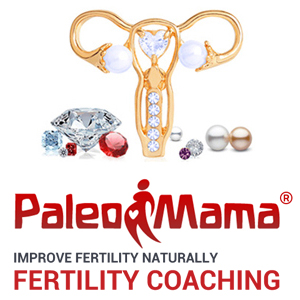By the time a woman reaches 30, over 90% of her ovarian reserve is gone. According to the study published by the University of St.Andrews and Edinburgh University in Schotland, 95% of women have less that 12% eggs left by age 30 and only 3% by age 40.
Most women are aware of this natural decline in fertility. So how can be explained that they don’t do anything to counteract it?
In 2005, a study published in Fertility and Sterility found that DHEA can help older women undergoing IVF treatments improve egg and embryo quality.
Now – a decade later and several dosen studies more with DHEA, research shows that not just older women in treatments, but all women in advanced reproductive age who are trying to get pregnant can benefit from DHEA supplements.
DHEA is produced naturally by the adrenal glands, is at its peak at around age 25 and then begins to decline.
So how can DHEA help you come a step closer to holding a baby in your arms? What can DHEA supplementation achieve? Here are some of the benefits of taking extra DHEA:
- DHEA improves egg and embryo quality – this means, DHEA increases fertility by helping you get and stay pregnant
- Doubles pregnancy rates, especially in women above 40
- Rejuvenates ovaries and improves immune status
How to take DHEA? Recent studies show that women need to take 50-75mg DHEA daily (link to the free full-text of the study) for at least 2-5 months to see the full effects of DHEA. Not only were the women who supplemented DHEA more likely to get pregnant, they were also more likely to experience a healthy pregnancy.
How is DHEA achieving this?
Research still needs to understand many details, but this is known:
- DHEA enhances ovarian function by increasing IGF-1 concentration
- DHEA facilitates follicular growth
- DHEA amplifies ovarian response to several hormones
So if getting pregnant is taking you longer then expected, it may be time to consider taking DHEA. Don’t wait too long. A woman is born with all the eggs she will ever have and with the time her ovarian reserve diminishes.
Scientific reports on DHEA improving egg and embryo quality:
- Barad D, Gleicher N. Effect of dehydroepiandrosterone on oocyte and embryo yields, embryo grade and cell number in IVF. Hum Reprod . 2006 Nov;21(11):2845-9.
- Barad DH, Gleicher N. Increased oocyte production after treatment with dehydroepiandrosterone. Fertil Steril. 2005 Sep;84(3):756.
- Gleicher N, Barad DH. Dehydroepiandrosterone (DHEA) supplementation in diminished ovarian reserve (DOR). Reprod Biol Endocrinol. 2011 May 17;9:67.
- Morales AJ, Haubrich RH, Hwang JY, Asakura H, Yen SS. The effect of six months treatment with a 100 mg daily dose of dehydroepiandrosterone (DHEA) on circulating sex steroids, body composition and muscle strength in age-advanced men and women. Clin Endocrinol (Oxf). 1998 Oct;49(4):421-32.
- Tummala S, Svec F. Correlation between the administered dose of DHEA and serum levels of DHEA and DHEA-S in human volunteers: analysis of published data. Clin Biochem. 1999 Jul;32(5):355-61.









I’m really glad I found your blog. This is exactly the kind of information I’ve been looking for. I will follow the link you provided and do some more research on DHEA, but it sounds like something that could help me. This is why I love the internet, because if you sift long enough, you get down to the gold. I will look for your book.